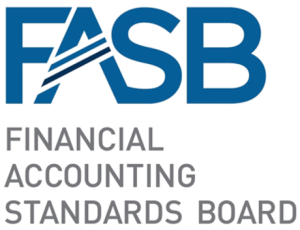Accounting Standards
FASB Private Company Council Meeting Recap
The Private Company Council (PCC) met on Thursday, April 18, 2024. This is a summary of topics discussed by PCC and FASB members at the meeting.
Apr. 26, 2024

The Private Company Council (PCC) met on Thursday, April 18, 2024. Below is a summary of topics discussed by PCC and FASB members at the meeting:
- PCC Agenda Priorities: PCC members discussed their agenda priorities and the factors that should be considered in their determination. PCC members supported conducting preliminary research on the following areas: debt modifications and extinguishments, credit losses—short-term trade accounts receivable and contract assets, lease accounting simplifications such as practical expedients or accounting alternatives for private companies, and the presentation of conditional retainage and overbillings as contract assets and liabilities.
- Stock Compensation Disclosures (PCC Research Project): PCC members decided not to add a project to the PCC agenda to consider stock compensation disclosures in Topic 718, Compensation—Stock Compensation. PCC members noted that there are more pervasive and pressing issues for the PCC to address such as those discussed under PCC Agenda Priorities.
- Accounting for and Disclosures of Software Costs: FASB staff provided PCC members with an update on the project, including the Board’s recent decision to pursue targeted improvements to Subtopic 350-40, Intangibles—Goodwill and Other—Internal-Use Software. PCC members provided feedback on whether the tentative amendments to Subtopic 350-40 under this approach would be auditable and operable. PCC members suggested that further clarification on unit of account and maintenance and enhancements guidance would improve the operability of the approach. Some PCC members observed that many software projects involve aspects of both linear and nonlinear development (commonly referred to as waterfall and agile development, respectively) and applying the tentative decisions for nonlinear development to all software costs within the Subtopic could reduce complexity. Additionally, PCC members observed that some of the new terminology included in the targeted improvements would introduce new judgments into the guidance. User PCC members indicated that they would like to be able to differentiate between recurring and one-time software costs and to have more insight into management’s judgments. PCC members also discussed whether a recognition and measurement exception is warranted for private companies.
- Accounting for Government Grants: The PCC discussed the Board’s recent decisions on this project, including its decisions to (1) leverage the accounting framework within IAS 20, Accounting for Government Grants and Disclosure of Government Assistance, for government grants and (2) make targeted improvements to the IAS 20 guidance and provide implementation guidance. PCC members generally agreed with the Board’s decisions and specifically expressed their support for including implementation guidance. Preparer PCC members asked about wording differences related to the recognition threshold between IAS 20 and the proposed wording in the Codification. Preparer PCC members also asked clarifying questions about the type of transactions that would be included in the proposed guidance based on the revised scope. User PCC members noted that the required disclosures in Topic 832, Government Assistance, are important to help users understand the accounting for government grants received by the private companies that they work with.
- Credit Losses Implementation: PCC members discussed recent observations on private company implementation of Topic 326, Financial Instruments—Credit Losses (CECL). PCC user members noted that they have not observed a significant effect on private company financial statements from applying CECL to trade accounts receivable and contract assets. Several PCC members commented on the application of CECL to contract assets and the interaction between credit risk and revenue recognition under Topic 606, Revenue from Contracts with Customers.
- Scope Application of Profits Interest Awards: PCC members supported the amendments in Accounting Standards Update No. 2024-01, Compensation—Stock Compensation (Topic 718): Scope Application of Profits Interest and Similar Awards. Several practitioner PCC members noted that the amendments will help private company stakeholders apply the guidance. PCC members discussed various ways to educate stakeholders on this Accounting Standards Update.Town Hall/Liaison Meeting Update: PCC members and FASB staff discussed feedback received during the March 2024 liaison meeting with the Institute of Management Accountants (IMA) Small Business Committee (SBC). FASB staff also noted that the PCC will hold a liaison meeting with AICPA Private Companies Practice Section (PCPS) Technical Issues Committee (TIC) in May 2024, and a town-hall style forum at the AICPA ENGAGE Conference in June 2024. FASB staff also noted that the FASB will present its semiannual webcast, IN FOCUS: FASB Update for Private Companies and Not-for-Profit Organizations, on June 10, 2024.
Other Business: FASB staff summarized the PCC’s closed meeting discussion of the interest rate environment and its effects on financial reporting, as well as other topics.
The next PCC meeting is scheduled for Monday, June 24, 2024, and a joint meeting between the PCC and the FASB’s Small Business Advisory Committee (SBAC) is scheduled for Tuesday, June 25, 2024.
